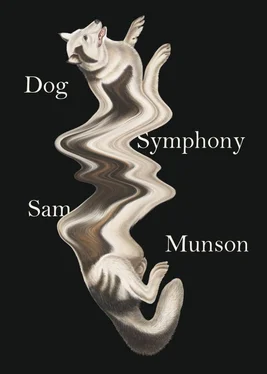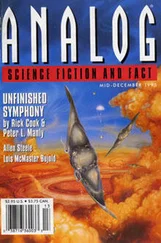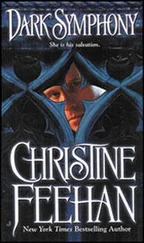A pistol shone in a holster on her hip. The history of armaments prison guards carried was by necessity a small part of my study. This was, I saw, a Browning, a nine-millimeter, known among my colleagues as dvuglavvy orel , a double eagle. Both military and civilian security forces employed it. Ana was the first to explain the history of this term, which stretched back to the second decade of the fifteenth century. Then, it referred to the two-billed halberds favored by the guards of the Piombi in Venice. The ventilation muttered, and again the wet, baritone chuckle sounded within Ana’s office. Officer, I just want to see if everything is alright, I said. The panic I had expected to constrict my throat, to bring sweat to my forehead and palms failed to inflame me. Due to my injuries, or to the frank impossibility of my regarding this security officer as a “real” policewoman. She was as much a burgherly poltergeist as the students, Pasternak, a ghost. That’s how I explained my refusal internally. If you don’t have your passport, sir, I’m afraid I need you to leave, said Luxemburg, in her viscous, anechoic voice, as if I had not spoken. I can escort you to the reception for visiting scholars, or I can escort you off the premises, it’s your choice, Mr. Pasternak. I tried the handle of Ana’s office again. Sir, please come with me, she said. I understand you’re upset, but you should speak to the boss about your friend. Her hard fingers pressed into my biceps. Their heat perceptible. Sickly light smeared on her cap bill, her holster, her belt, the black butt of her baton. And her boots, patent leather, in which my own attenuated and already half-forgotten form was reflected.
THE SUN HAD SUNK below the toothed skyline of Recoleta. Its last rich tints colored the air orange, lilac, and crematory gray. The roof garden was already crowded, and the crowd was already rendered indistinct by approaching night. The garden deserved all the scorn Ana had poured on it. It could only be considered a garden because of the pergola edging the roof, which was made of odorous unweathered pine. From it dangled Christmas lights in uneven loops and sky-blue streamers.
Cindery tiles and patches of naked tar formed the “earth” here. At the center of the garden a long trestle table covered in a white cloth held two steel bowls, like the meat and water bowls before Violeta’s door, before the University’s, before all doors I had seen. Nothing filled them. In the northwest corner, a white metal shed emitted the sweet smell and clotted sound of frying. Waiters wearing white shirts and black pants dashed out of this shed, carrying bottles of red wine on silver trays, pouring drinks for the partygoers. Luxemburg had left me alone by the door of the emergency staircase. Guests appeared to be using this because of the elevator problem. She had joined the other officers patrolling the roof edge, staring down at the quadrangles to the east and south. She clearly enjoyed command over this squad. She moved from officer to officer, patting their shoulders or talking to them, joking around, offering them cigarettes from a sky-blue case. I expected her to keep harassing or threatening me once we reached the rooftop, but as soon as we stepped out and the cinders rustled under our soles, she stopped paying any attention to me.
I had come to find Sanchis Mira. Ana’s absence worried me. Her locked office door and the gulping noise I’d heard within worried me, though again I dismissed these worries as sentimental. Sanchis Mira would be able to reassure me, but I knew nothing about him: his first name, what he looked like, his height or weight. I knew that his last name was shared by a company that manufactured turrón, a disgusting nougat candy that Ana and I discovered in Córdoba. And I remembered Ana’s statement that he had once been a professor of French. But that would not help me locate him in the crowd on the roof, all former or present professors of French (professors of coprophagia beneath the chandeliers, in Ana’s phrase) in spirit if not in fact. I could not walk from partygoer to partygoer and ask if they happened to know where Sanchis Mira was. Rather, I could have, but it would have required engaging in fast, trivial conversations, a skill I never mastered. Instead I waited and stared at each male face as it passed. Was he this obese man with the face of a disappointed pederast, like an inflated latex mask? Was he the cadaver swaying in the night breeze as he stared down into the quadrangles? I did not know, and because I did not know, every middle-aged man became him, impersonated him, consumed and excreted him, I thought, yet not one was him, not one could touch the essential being. I realized I was mouthing these absurd sentiments as I stared, which explained the visual hostility that met me, and also explained the cyclonic pattern the waiters formed as they whirled across the roof carrying their trays and their black bottles, ignoring me. It explained the migraine blossoming, along with flashes of ocular white, within my skull, and the fact that whenever I closed my eyes against the pain I saw again the blinding marble benches outside La Chacarita.
The wines of Mendoza have no equal anywhere in the world, said a strong, warm voice. I opened my eyes. This voice emanated from beneath a roach-colored mustache echoing the hard horizon. On it, smears of final chalky light. You are Dr. Pasternak, said the bearer of this mustache, this earthly-law mustache. Yes, I replied. Captain Luxemburg pointed you out. I’m Sanchis Mira, and we should have been introduced before. He explained that he was the new head of the Department of Social Praxis. The Department had absorbed administrative responsibility for the prison studies conference, he added. He apologized again for the misunderstandings that had plagued, as he put it, my time in his bailiwick so far: the interruption of my lecture, the lack of any organized reception. His warm voice easily overcame the shouts drifting up from the campus. Someone was trying, near the walls of the building beneath us, to start up a cry of First ethics, then meat . His small, reddened eyes quivered as he noted the auscultatory stance which I’d assumed without meaning to. A waiter came up and proffered glasses of wine. My host, my chief host, went on: As a professor you will learn to ignore the brutal sentimentality of students, he said (though I was already a professor). The current climate on the fields (his phrase) of the social sciences faculty was not safe for a foreign academic. The student agitators who interrupted you (he meant the women) were well known to the University security services, as was the boy who criminally assaulted them. True, he said, only the boy had technically committed a crime, the propagation of false historical ideas violated no law, but the agitators were guilty as well, though that, he knew, must be hard for an outsider to understand.
The cry grew and grew in strength. More throats offered themselves up to it. Guards in sky blue leaned over the parapet to observe the shouting students. I asked Sanchis Mira if he knew how I could get in touch with Dr. Mariategui. I am unfamiliar with that name, sir, Sanchis Mira said. His eyebrows (much thinner and frailer-looking than his mustache, with widely spaced individual hairs visible) bent into a fatherly frown. I gave Ana’s particulars: a historian, in my field, about my age, dark haired. I left out certain other particulars, namely Gogol and Pascal, and I said nothing about my attempted incursion. Sanchis Mira arranged the flukes of his mustache. The guards, I saw, had drawn their guns and were aiming them into the quadrangle, where the cries were most voluminous, most pure. Not from here you couldn’t, Luxemburg shouted, it’s too far. You must know her, I said. I do not, I am afraid, said Sanchis Mira. I am an administrator now and I do not meddle in the affairs of scholars. I was a scholar myself once, sir, a professor of French, and I remember how offensive the interference of administrators was to me. All the administrative work heading the new department required is distasteful to me, but I nonetheless have to perform it. Social praxis, Mr. Pasternak, he said, social praxis and its mysteries.
Читать дальше












